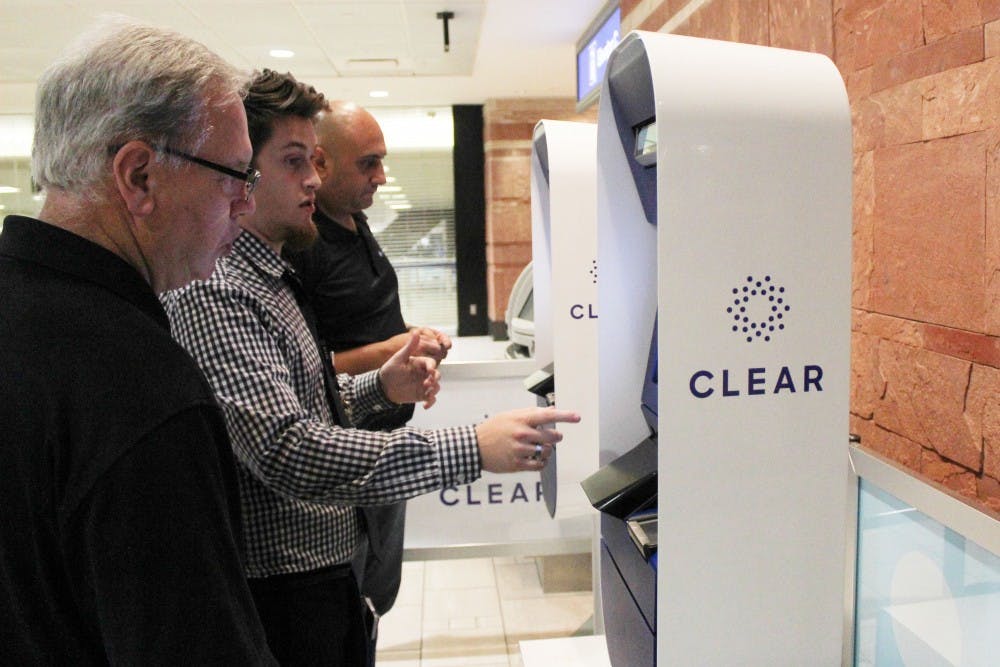Long lines, crowded spaces and having only socks on your feet in a public place – airport security lines are almost never a joyous experience, especially during the holiday season.
As Sun Devils make their holiday plans, new technologies are emerging to help ease the process.
One of these technologies is Clear, which was just introduced as an option to streamline the regular security screenings Sky Harbor in July.
Clear is a security system that uses biometric data, such as irises and fingerprints, in order to help customers move through security lines faster at airports and stadiums.
The membership fee is $179 a year, and there is an option to do a one month free trial.
Jackie Puma, the general manager for Clear in Phoenix and an ASU alumna, said that Clear is a great option for students who travel often.
“In today's world, everybody wants things now, right?" Puma said. "They want it faster, so I think that students will benefit from not waiting in line (at the airport), because that’s what they are used to with everything, you know, Amazon, Uber, things like that.”
A representative from Clear echoed this statement, saying that the company is looking to make security lines a more seamless customer experience.
The representative explained that there are two aspects to airport security: There is the ID check line, which is generally the longest step in the process; and the physical security, which is where people's bags and other items are scanned and checked.
Clear automates the first step by having a machine scan the fingerprints and irises of the member.
The Clear representative explained that the biometric data used by the Clear machines is safer than just checking an ID and boarding pass because fingerprints and irises are unique to each individual. This makes it near impossible to have a false match.
But that raises questions about the security of using such sensitive information. Data, however, is very sensitive.
According to the ASU Information Security office, sensitive data is defined as personally identifiable information, such as credit card or social security numbers.
Adam Brossman, a senior computer science major, said that information security is an uphill battle.
He said that one of his concerns is about the sensitivity of the biometric data Clear has on its members.
"A password is easy to change," Brossman said. "It's a lot harder to change your fingerprint or your iris."
But some ASU professors said that the technology is not as scary as it might seem.




